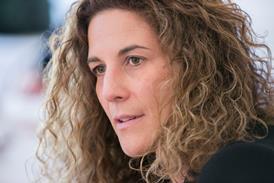In his weekly update for HSJ and Nursing Times, national director for NHS flu resilience Ian Dalton discusses the latest developments in UK swine flu preparations
What should NHS staff be focusing their efforts on?
With levels of influenza caused by the H1N1 (2009) pandemic virus in the community currently low, I have been looking at the current arrangements in place to respond to the pandemic.
During the treatment phase of this pandemic, special arrangements were put in place in England for antiviral treatment. These included those with influenza like illness having early access to antivirals and the national pandemic flu service - a self-care service allowing patients with suspected H1N1 (2009) influenza to be assessed online or by telephone and issued with antivirals if appropriate.
With the support of the Royal College of GPs and the British Medical Association, the national pandemic flu service has been very successful in easing pressure on primary care services during the busiest times of the pandemic, allowing GPs to focus on those most ill and ensuring people get access to antivirals when they need them. However, with indicators showing that NHS pressures from influenza like illness and H1N1 (2009) are now less than half what they were two weeks before the national pandemic flu service being switched on, and in consultation with stakeholders, it has been decided to stand down the national pandemic flu service effective 1am Thursday 11 February 2010. The service can be restored in seven days should it be needed.
The web and phone service of the national pandemic flu service will be discontinued simultaneously. A mid-week date should allow time during the working week to gear up to making the change as smoothly as possible. PCTs, general practices and community pharmacies will need time to ensure that all their communications to patients, including websites, posters and leaflets, exclude reference to the national pandemic flu service, and that they can respond to any queries.
The swine flu information line will continue to operate and will provide recorded information messages, directing people to contact their GPs if appropriate and giving information about swine flu and self-care.
From 11 February onwards, antivirals will only be authorised via healthcare professionals using either antiviral authorisation vouchers or the right hand side of FP10s (endorsed “ACP”). Antiviral collection points will continue to function until the end of the flu season and I expect PCTs to sustain a network of antiviral collection points appropriate for the level of demand in their areas, providing appropriate access for patients, and continue to ensure that practices are informed of their locations and opening times. It continues to be important that patients are able to gain access to antivirals quickly and therefore weekend and extended hours of access should still be provided.
The next steps
It is extremely important that we do not allow the current low levels of influenza like illness and the stand down of the national pandemic flu service to lead to a sense of complacency.
There is still considerable uncertainty about how the virus will behave over the coming months and years. Experts advise us that it likely that pandemic H1N1 (2009) will be the predominant flu virus in the 2010 influenza season, and it is worth remembering that swine flu is still in circulation.
Though the rates of hospitalisation and admissions to critical care facilities have fallen, substantial numbers of patients are still receiving treatment in this way. Deaths from pandemic H1N1 (2009) continue to occur, and while it is now clear that these rates overall have been lower than in previous pandemics and in some flu seasons, the disease has disproportionately affected young people, and this is where most complications have occurred, particularly in those with pre-existing chronic illness. Vaccination remains the best form of protection against swine flu.
Good progress has been made in delivery of the vaccination programme to date but we must not be complacent. Vaccination should continue to be made available to children under five and those in the priority groups, including frontline health and social care workers through your current vaccination programme arrangements.
A further campaign of national advertising will begin on Wednesday 27 January 2010 to publicise the vaccination programme and encourage eligible people to contact their GPs. The chief medical officer has also written to encourage GPs to make further contact with people in the risk groups who have not yet had the vaccine.
The healthcare worker vaccination programme is a key governance responsibility for NHS boards and preparations for this should have been included in September statements of readiness that I requested in July 2009. I would expect that staff who want to be vaccinated against swine flu should continue to be able to receive the vaccine.
Progress to date
Our response to the pandemic to date has been the result of a tremendous amount of hard work, collaboration and commitment on the part of the NHS. I would like to thank you once again for your contribution, as we respond to this next phase of the pandemic.
Surveillance and monitoring of swine flu cases will also continue. In the event of any reports of significant additional pressures on primary healthcare services, it will be important to confirm whether this is as a result of swine flu cases or other seasonal pressures.
All the latest information on the current increase in numbers of flu like illnesses, GP consultation rates, hospitalisations and deaths can be found on the HPA website.
The most up-to-date clinical information and guidance can be found on the Department of Health website at www.dh.gov.uk/swineflu.


























No comments yet